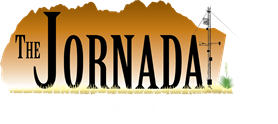Jornada Bibliography
Export 17 results:
Filters: First Letter Of Title is Q [Clear All Filters]
.
1976. Quaternary stratigraphy in the Basin and Range and Great Plains provinces, New Mexico and western Texas. Quaternary Stratigraphy of North America.
.
1975. Quaternary history of Dona Ana County region, south-central New Mexico. New Mexico Geological Society Guidebook 26. 26th Field Conference:139-150.
.
1969. Quaternary geology of the south-central New Mexico border region. Border Stratigraphy Symposium. Circular 104:89-115.
.
1994. Quantitative modeling of soil forming processes in deserts: the CALDEP and CALGYP models. :129-145.
.
2007. Quantitative effects of vegetation cover on wind erosion and soil nutrient loss in a desert grassland of southern New Mexico, USA. Biogeochemistry. 85:317-332.
.
1970. A quantitative ecology of the Jornada Experimental Range. Proceedings: Simulation and analysis of a semidesert grassland: An interdisciplinary workshop program toward evaluating the potential ecological impact of weather modification. Science Series No. 6:I-133--I-177.
.
2022. Quantifying the water quality benefits of implementing manureshed concept based manure management in the Susquehanna River Basin. 2022 Chesapeake Community Research Symposium, Annual Meeting, June 6-8, 2022.
.
2010. Quantifying terpenes in rumen fluid, serum, and plasma from sheep. Journal of Animal Science. 88:58.
.
2015. Quantifying soil and critical zone variability in a forested catchment through digital soil mapping. Soil. 1:47-64.
.
2017. Quantifying long-term trajectories of plant community change with movement models: implication for ecological resilience. Ecological Applications. 27:1514-1528.
.
2015. Quantifying how short-term environmental variation leads to long-term demographic responses to climate change. Journal of Ecology. :1-12.
.
2014. Quantifying drylands’ drought resistance and recovery: the importance of drought intensity, dominant life history and grazing regime. Global Change Biology. :1-16.
.
2002. Quantifying changes in carbon pools accompanying shrub invasion of a desert grassland. 17th Annual Symposium, International Association for Landscape Ecology. :110.
.
2015. On quantifying active soil carbon using mid-infrared spectroscopy. 5th International Symosium on Soil Organic Matter Dynamics: Land USe, Management and Global Change.
.
2014. Quantifying accelerated soil erosion through ecological site-based assessments of wind and water erosion. Eighth International Conference on Aeolian Research (ICAR VIII). :p.357.
.
1999. A qualitative geophysical explanation for "hot spot" dust emitting source regions. Contributions to Atmospheric Physics.



